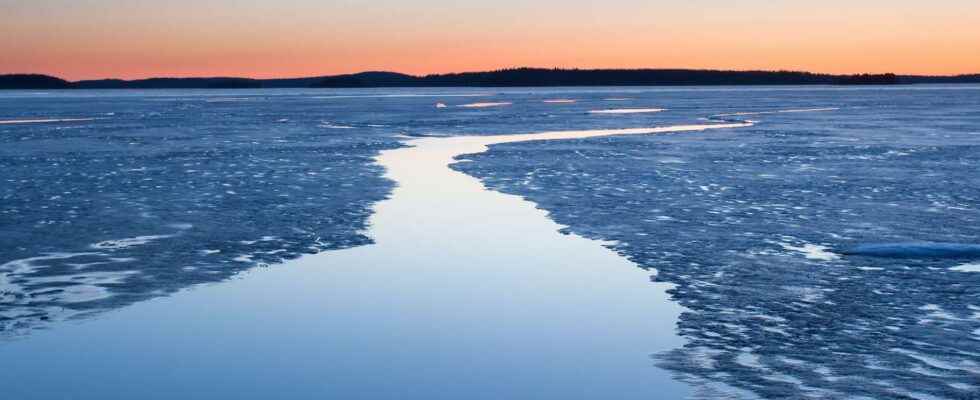During the past summer and through this fall, the Great Lakes of North America posted record temperatures. Another consequence of anthropogenic global warming. And researchers are telling us today that all the lakes in the Northern Hemisphere are warming up faster than they ever expected.
You will also be interested
[EN VIDÉO] CryoSat reveals extent of melting ice The CryoSat-2 satellite carried out various observations on glaciers in Alaska and Asia, demonstrating massive loss of ice on the peaks from 2010 to 2019.
Lake Superior, with an area of over 80,000 square kilometers, is the largest lake inpure water in the world. It is also, we learn today from York University researchers (Canda), one of the fastest warming lakes in the Northern Hemisphere. Three times faster than the average. Since recording began in 1857, it has already lost more than two months of ice cover.
And his case is not unique. Overall, the researchers note that, under the effect of anthropogenic global warming, the lakes of our hemisphere – they have studied about sixty over the past 100 to 200 years – have warmed six times faster between 1992 and 2016 than in any other period of the last century. “Many of them may be approaching their tipping point, with the many implications that this could have”, underlines Sapna Sharma, researcher, in a communicated.
Consequences for communities
Lakes now freeze eleven days later than before and thaw on average almost seven days earlier. Some – deep lakes in Switzerland or Germany, for example – even experience ice-free winters. However, the phenology of ice on lakes is seen as an important sentinel of climate change. The conclusion is always the same: a reduction in our emissions of greenhouse gases is needed to control the phenomenon.
Because, remember that a temperature rise of our lakes rhymes with an increasing rate of evaporation, deteriorating water quality and the proliferation of toxic algae. Historical records also show that the phenomenon could disrupt certain leisure activities or impact cultural traditions. All, of course, with economic consequences for the surrounding populations. Especially sinceother works show a similar phenomenon in thesouthern hemisphere.
Unheard of: Futura launches its very first paper magazine ! A 200-page review, 4 files on Science that will mark 2022.
For this adventure to succeed, Futura needs you. Meeting on Ulule to support the project and participate in its launch. More than ever, let’s make Science accessible to as many people as possible. #LeMagFutura
So, ready to embark on the Mag Futura?
Interested in what you just read?
.
fs11
